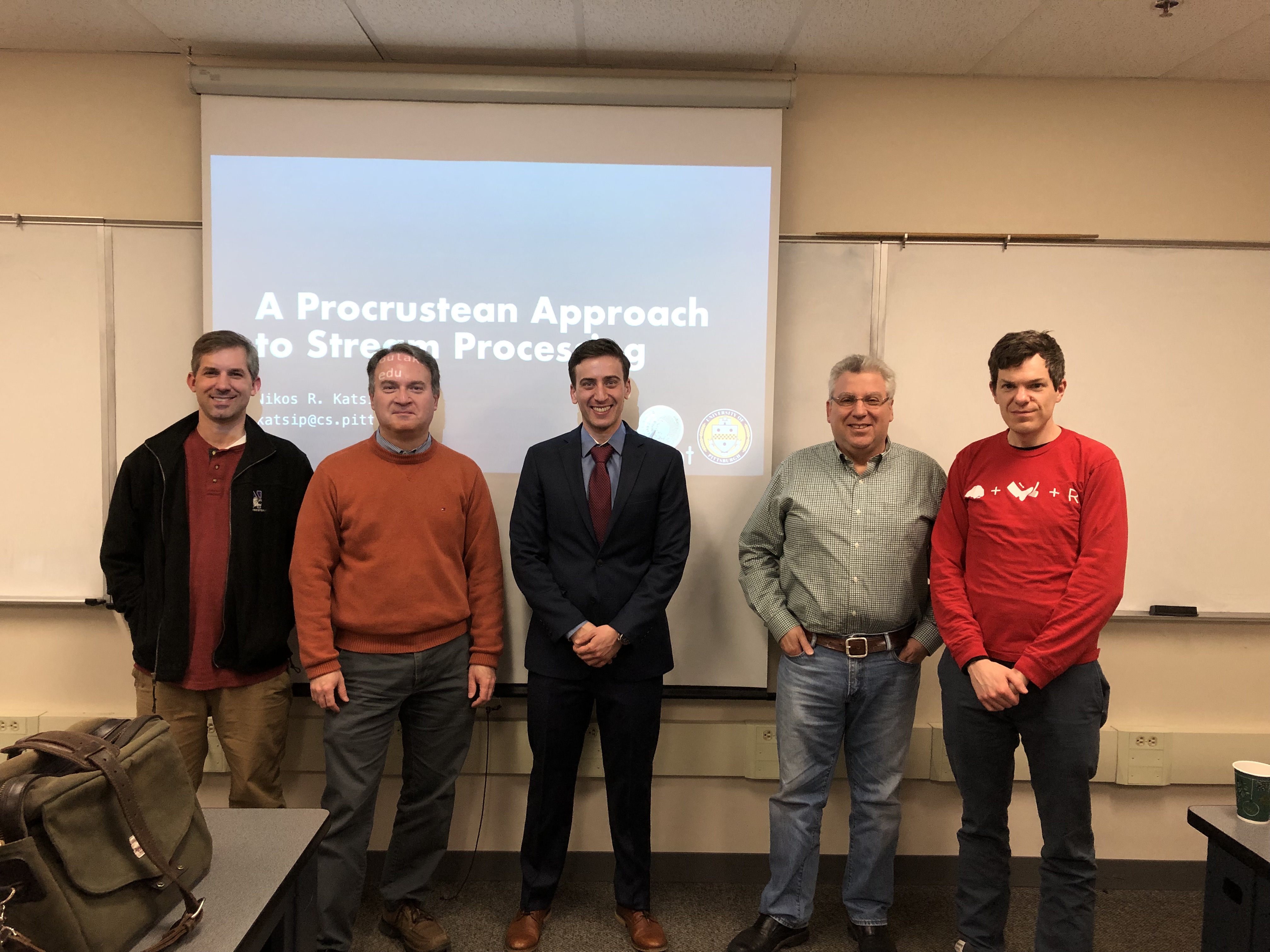| On Tuesday, December 18, 2018, Nikolaos Romanos Katsipoulakis successfully defended his thesis. Congratulations Nikos! |

|
Committee
Alexandros Labrinidis, Department of Computer Science, University of Pittsburgh (co-chair)
Panos Chrysanthis, Department of Computer Science, University of Pittsburgh (co-chair)
Jack Lange, Department of Computer Science, University of Pittsburgh (member)
Andy Pavlo, Department of Computer Science, Carnegie Mellon University (member)
TITLE: A Procrustean Approach to Stream Processing
Abstract:
=== START ===
The increasing demand for real-time data processing and the constantly growing data volume have contributed to the rapid evolution of Stream Processing Engines (SPEs), which are designed to continuously process data. Low operational cost and timely delivery of results are both objectives of paramount importance for SPEs. Given the volatile and uncharted nature of data streams, achieving the aforementioned goals under fixed resources is a challenge. This calls for adaptable SPEs, which can react to fluctuations in processing demands.
In the past, three techniques have been developed for improving an SPE’s ability to adapt. Those techniques are classified based on applications’ requirements on exact or approximate results: stream partitioning, and re-partitioning target exact, and load shedding targets approximate processing. Stream partitioning strives to balance load among processors, and previous techniques neglected hidden costs of distributed execution. Load Shedding lowers the accuracy of results by dropping part of the input, and previous techniques did not cope with evolving streams. Stream re-partitioning is used to reconfigure execution while processing takes place, and previous techniques did not utilize window semantics.
In this dissertation, we put stream processing in a procrustean bed, in terms of the manner and the degree of processing. To this end, we present new approaches, which are applicable to both exact and approximate stream processing in modern SPEs. Our solutions offer improvements in performance and accuracy on real-world data. In addition, we developed an SPE that delivers approximate results with accuracy guarantees, by avoiding unnecessary load. Finally, we contribute a hybrid technique, which can further improve load balance and performance of an SPE.
=== END ===

Nikolaos (mid) with Professor Jack Lange, Professor Alexandros Labrinidis, Professor Panos Chrythansis, Professor Andy Pavlo just after his defense.
